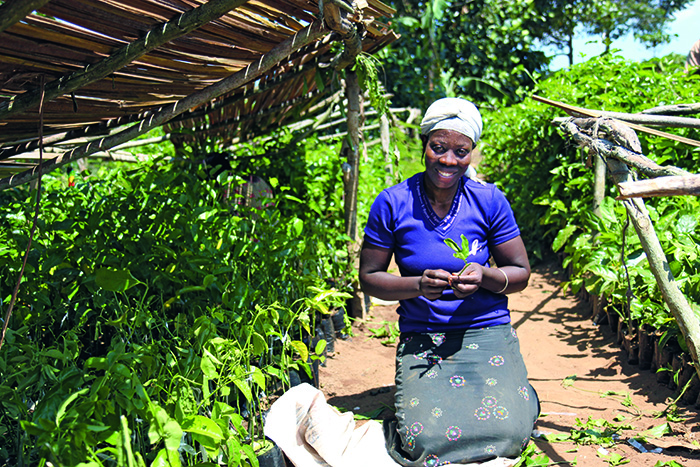Background
Despite a long history of robust family planning programs, an estimated one-quarter of Kenya’s population still has an unmet demand for family planning. With vast swaths of rural, undeveloped areas, the most remote populations remain the least likely to be able to access contraception. Among women ages 20 to 24, one out of four is married and has had a child by age 18. In this same age group, women in rural areas are twice as likely to be married by age 18 as women in urban areas, increasing the likelihood of childbearing at a young age. In Kenya, 43 percent of pregnancies are unplanned.
In its constitution, the government has explicitly pledged a renewed commitment to ensuring every Kenyan has the right to receiving health care services, including reproductive healthcare. E2A is assisting the government with realizing that commitment, particularly by helping to bring high-quality reproductive health and family planning services to underserved populations.
HOPE LVB
Pathfinder International has implemented Health of People and Environment in the Lake Victoria Basin (HoPE-LVB) Project since 2011. HoPE-LVB reduces threats to biodiversity conservation and ecosystem degradation in the LVB while simultaneously increasing access to family planning and sexual reproductive health to improve maternal and child health in project communities. The project works with fisheries and on land management, wetlands protection, alternative income generation, women's empowerment, health systems strengthening, and activities to promote maternal health and family planning.
E2A has provided support for HoPE-LVB in three key areas: 1) systematically expanding and institutionalizing innovations, 2) ensuring rigorous monitoring and evaluation of the HoPE-LVB model and scaling-up process, and 3) policy and communications activities. E2A’s core partner ExpandNet plays an integral role in the scale-up of HoPE-LVB, using its own approach, Beginning with the End in Mind. Inherent to this approach and integral to the scale-up process is the engagement of key stakeholders, specifically Population, Health, and Environment Champions. With ExpandNet’s approach to scale-up, HoPE-LVB has seen optimistic initial results especially related to sustainability, including garnering the support of government stakeholders and the Lake Victoria Basin Commission.
CHAK Family Planning Project
From September 2014 to June 2016, E2A supported the Christian Health Association of Kenya (CHAK) through a grant that was used to engage religious leaders and other community leaders to build local support for family planning. CHAK also worked with community outreach workers to increase the demand for and use of family planning services. The grant supported the community-based provision of short-acting family planning methods and referrals to nearby health facilities for long-acting methods. All grantees were also supported to improve the quality of facility-based services, including providers’ skills to offer intrauterine devices and implants.
The grant to CHAK supported the organization to work in eight CHAK facilities located in two regions: Nyanza and Upper Eastern. Nyanza is a rural region with a lower than national average contraceptive prevalence rate (37 percent), while Upper Eastern has a higher than average contraceptive prevalence rate (52 percent), yet a less robust community-based family planning program. The grant was one of three that E2A has awarded to African Christian Health Association Platform (ACHAP) members. ACHAP is an advocacy and networking platform for Christian health associations and church health networks from sub-Saharan Africa.
Strengthening and Scaling Up Kenyatta University’s Youth-Friendly Services (YFS) Program
E2A's research on Kenyatta University's longstanding youth-friendly services (YFS) program is helping to enrich understanding of the factors and contextual issues (include age and gender) that influence behaviors, outcomes, and health-seeking trends related to family planning and reproductive health. This evidence will provide Kenyatta University with an enhanced evidence base for decision making about its YFS program. E2A will hold multiple stakeholder workshops and provide ongoing technical support to the university to strengthen both the quality of the YFS program and its reach, with plans for future scale-up at the Nairobi campus and to other campuses. E2A’s documentation of this experience will highlight the health impact of effective YFS programming and the process of scale-up.
